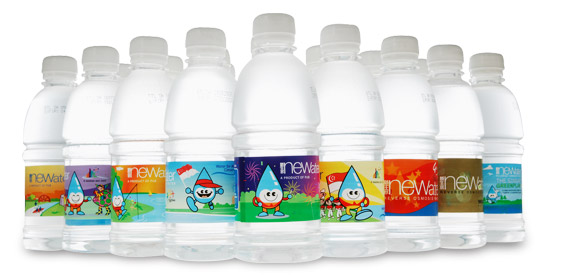Dear Mr Chen Ko,
I read some of your blogs and would appreciate your advice. As I
understand a minute amount of NEwater is added into the reservoirs and then
subsequently makes its way into our tap water through the normal
processes.
While the amount of NEwater is small, I am now thinking of using
bottled water for my family. I have been searching through and I can't find any
company that provides distilled water made from mineral water. They all seem to
state that their distilled water is from the local water supply.
If one was to buy mineral water, would that be good for the body
in the long run? Or do you have any suggestions on other types of water to
consume, such as spring water and etc.
Your earliest reply is appreciated.
Shabbir
Dear Shabbir,
- For those outside of Singapore (SG), Newater is our national brand of water further reclaimed from the effluent of wastewater treatment plant (euphemistically named water reclamation plant (WRP)). Our local and only water utility company, PUB, has been adding Newater in small amounts into our reservoirs. The combined water is subsequently sent for water treatment before ending up in our taps.
Just wondering, do you have any particular concerns with regards to this practice? I am neither pro- nor anti-PUB but I fail to see any problems arising due to this. Water is water and with the proper treatment, any contaminant can be removed or at least reduced to below detection limits.

Figure: Newater
- A couple of thoughts about bottled water
- It is expensive! Easily the most expensive form of water vs. tap and filtered water. If I have the money to go long term on bottled water, I will probably use an alternative source of water and use the leftover money for something else :-)
- The plastic itself lends to waste. Though recyclable, I would rather not use it in the first place.
- Certain bottled are treated (filtered or otherwise) tap water. In the case of bottled distilled water, the treatment includes a distillation step.
- Depending on how clean the treatment and bottling setup is, bottled water can already be contaminated with fecal matter, bacteria, solvents etc. despite its beautiful packaging.
- As for distilled water
- It is similar to RO (reverse osmosis) water, demineralised water (possibly by ion exchange) and Newater in the sense that it has little constituents i.e. as close to pure water as you can get.
- Therefore, it does not make sense to produce distilled water from mineral water. All the minerals would have been stripped, rendering the perceived advantages of mineral water moot.
- Water, whether distilled, demineralised or RO, is "aggressive". It has so little constituents that it becomes reactive.
- There had been claims that it can leach minerals and nutrients from your body. However, there are studies that have refuted otherwise so I personally think that this issue is inconclusive.
- Of greater concern is such aggressive waters can attack (read corrode) the distribution network, leaching chemicals from piping and fixtures. How would you like to have your coffee laced with lead and copper?
- And don't forget how you store your water. If your storage container is not inert like glass, the same aggressive water can also leach out chemicals from your favourite plastic jug.
- Others claim that these "pure" waters are doing a disservice to your body since they are not providing the minerals your body needs. My take is I drink water because I need water. The minerals I need are more effectively obtained from my food or possibly supplements. (Again some studies have shown that minerals e.g. calcium, magnesium can indeed be obtained from your drinking water which I believe. But why bank on your water for a small amount of these nutrients when you should focus on getting a balanced diet?)
- In answer to your question: No, I don't believe mineral water (in the form of bottled water) is a long term solution to your water needs because of the reasons given above. In an emergency or short term usage (e.g. 2-week community service in a developing country), bottled water has its place but no more than that.
I still maintain my stand that our (SG) tap water is good enough to consume unless you have specific concerns, perhaps due to certain health condition or maybe your particular belief in the properties of our tap water. In that case, I recommend that you pinpoint that concern and address it via a suitable treatment method which can be superior to whatever treatment used in bottled water.
No comments:
Post a Comment